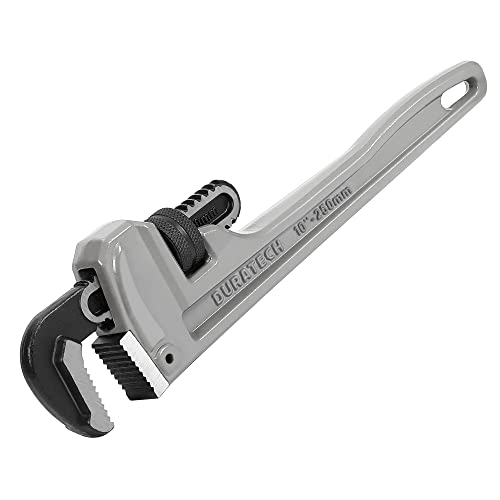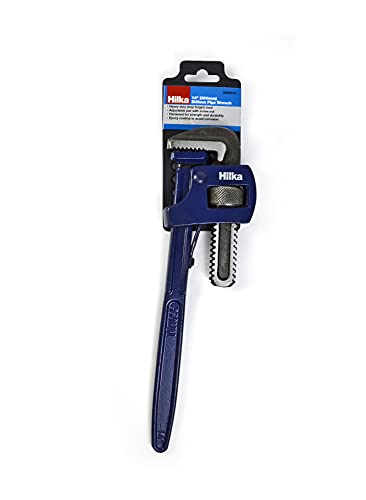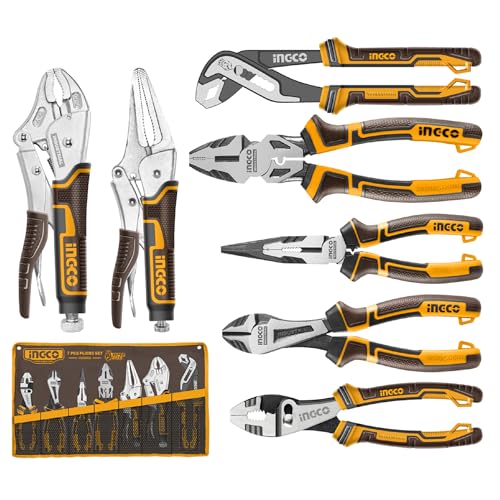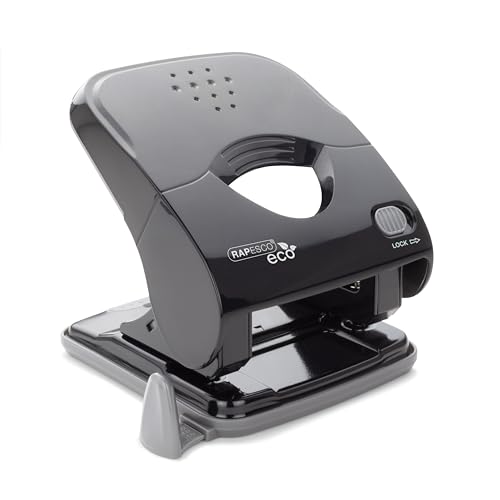Understanding Pipe Wrenches: Types and Uses
Different Types of Pipe Wrenches
Pipe wrenches are indispensable tools for anyone working with plumbing or pipe fitting. There are generally two main types: the conventional pipe wrench and the slip joint wrench. The conventional pipe wrench has serrated jaws designed specifically for gripping round objects, which makes it perfect for gripping pipes. On the other hand, a slip joint wrench, often called an adjustable wrench, is versatile as it can handle various sizes of nuts and bolts, not just pipes. Knowing the right type of wrench for your task can make a significant difference in efficiency and effectiveness.
Common Uses
In practical scenarios, you might find yourself dealing with leaky pipes or installing new plumbing fixtures. In such cases, a pipe wrench allows you to securely grip and turn pipes without damaging them. Heavy-duty tasks, like removing old piping or tightening fixtures securely in place, are where these tools truly shine. The unique gripping design ensures that the wrench holds onto the pipe firmly, allowing you to exert the force needed without slipping.
Choosing the Right Pipe Wrench for Your Needs
Assessing Your Projects
When selecting a pipe wrench, the first step is to consider the types of projects you typically engage in. If you primarily work with smaller pipes, a smaller wrench will suffice, whereas larger jobs may require a heavier, longer wrench that offers better leverage. Imagine needing to fix a pipe under your sink—here, a compact wrench allows for manoeuvrability in tight spaces. Conversely, if you’re tackling larger plumbing tasks, a larger, heavier-duty wrench provides the necessary grip and torque.
Weight and Size Considerations
Consider the weight and size of the wrench because these factors can affect both the usability and the effectiveness of your work. A lightweight wrench is easier to handle, especially during longer projects where fatigue can set in. However, ensure it still has enough heft to allow you to apply adequate torque. It’s worthwhile to consider your own physical capabilities as well, ensuring the wrench feels comfortable and manageable in your hand.
Essential Features to Look for in a Pipe Wrench
Jaw Design
The jaw design is crucial when selecting a pipe wrench. Look for models with adjustable jaws that provide a firm grip on varying pipe sizes. An ideal wrench should open wide enough to accommodate the largest pipes you may encounter while still gripping tighter on smaller ones without excessive play. Some wrenches feature serrated jaws to enhance grip, making them perfect for slippery surfaces.
Material and Build Quality
Another essential aspect is the material and build quality of the wrench. High-quality steel construction ensures durability, enabling the wrench to withstand heavy use without bending or breaking. If possible, choose a wrench with a robust finish to resist rust and corrosion, as this significantly extends the tool’s life and keeps it in good condition over time.
Proper Maintenance of Your Pipe Wrench
Cleaning and Lubrication
Regular maintenance is key to ensuring your pipe wrench operates smoothly for years. Start by cleaning the wrench with a dry cloth after each use to remove dirt and debris. For tougher grime, a gentle cleaning solution can be used. It’s also beneficial to lubricate the movable parts with a light oil to prevent rust and ensure smooth operation when adjusting the jaw.
Storage Tips
Proper storage is equally important. Store your wrench in a dry location, ideally in a toolbox or a dedicated spot where it won’t get knocked around. This not only protects it from damage but also ensures it is readily accessible when you need it for your next project.
Top Recommendations for the Best Pipe Wrenches on the Market
Best Overall Choices
For versatility and reliability, consider brands and models that have garnered positive feedback from users. Look for wrenches that feature durable materials, comfortable grips, and adjustable jaws. User reviews often highlight specific models that excel in both small and large tasks, so pay attention to those insights. Investing in a high-quality wrench can save you from the frustration of using subpar tools, making it a choice worth considering.
Specialty Options
If your work involves intricate plumbing or unique fixtures, explore specialty pipe wrenches designed for specific tasks. Such wrenches may offer unique features, like extra-thin profiles or enhanced gripping mechanisms, tailored for particular jobs. Evaluating your needs and the types of tasks you perform regularly can guide you to select the right tool, ensuring that you have the appropriate wrench for any challenge that may come your way.






























